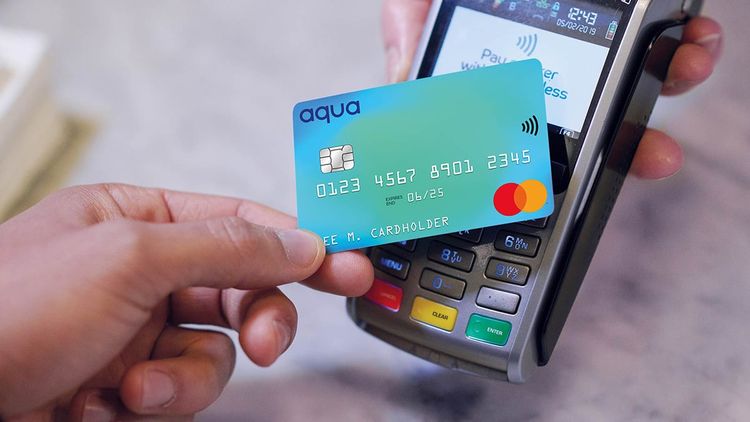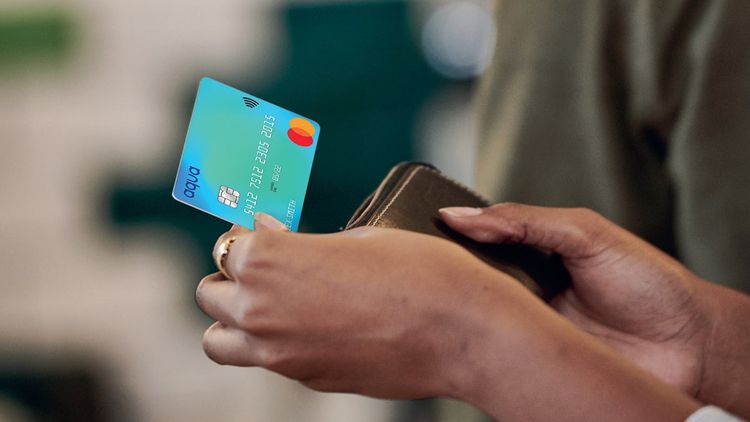In this article
Using your credit card abroad
Find out how you can use your credit card to spend abroad safely, with tips and advice to utilising your card sensibly.

When you’re planning a trip away, one of the most important things to think about is your spending money, which includes working out how much you’ll need for all the activities you want to do and whether you should use cash, a prepaid travel card, or a credit card.
However, using a credit card overseas isn’t always as cost-effective or as simple as using a credit card in the UK. We’ve put together a quick guide with things to keep in mind when using a credit card abroad and which kind of card to use.
What to look out for with spending abroad
Using a credit card is a good way of spending money abroad safely as cash can be easily stolen and is impossible to recover if you misplace it, whilst credit cards can be blocked in the event of loss, theft, or fraud.
If you’re planning to use your credit card abroad, there are a few things you should keep in mind, such as the hidden ATM foreign transaction fees that some providers charge.
Hidden Fees
Depending on the type of credit card you have, transactions and ATM withdrawals made in foreign currencies could come with an additional charge.
But why do some banks and lenders charge ATM fees abroad? Credit card users may be charged additional fees to compensate for the costs involved with converting your home currency (GBP) into the local currency of the country you’re in.
The types of fees you might incur on purchases made abroad with a standard credit card include:
- Non-sterling transaction fees: This is a fixed fee card issuers charge to convert foreign currency into sterling. Depending on the credit card, this could be around 3% of the total transaction.
- Cash withdrawal fees: Some credit cards charge a fee to make ATM withdrawals abroad, it’s usually a fixed percentage based on how much you decide to withdraw.
- Interest on cash withdrawals: Overseas withdrawals usually come with high interest rates charged daily from the date of the withdrawal.
While travel cards are designed specifically for use overseas, some credit cards also offer good exchange rates and help avoid big international charges. It’s a good idea to investigate what your credit card offers and if it’ll allow you to spend overseas without fees.
Is it better to pay in your home or local currency?
When you make a transaction abroad, you might be asked whether you want to pay in sterling or the local currency. In most cases, you’ll save more if you choose to pay in the local currency.
If you pay in sterling, the foreign bank or retailer that you’re making a purchase with can set the exchange rate used to determine the sum of your bill, which is likely to be significantly higher than the rate set by Visa or Mastercard that is used to convert sterling to the local currency.
If your credit card is unfortunately lost or stolen whilst you are abroad, you need to let your card provider know as soon as possible so that they can block any future charges and prevent your card being used for fraudulent purchases.
How to prepare for spending abroad
Preparing is an essential first step towards any holiday, it’s the best way to get excited for a trip away and it’ll help you make sure you have enough money to do everything you want to do whilst you’re away.
Here’s a step-by-step approach to preparing your money before you go on a trip.
1. Figure out your budget
Budgeting is the first step towards an exciting trip away, and as much as saving up for a holiday might seem like a daunting challenge on the surface, it doesn’t have to be.
Once you’ve decided on your destination, do some research to find out how much the trip will cost you in total. That includes flights, accommodation, food and drink, insurance, any excursions you want to go on, and spending money for gifts and souvenirs. It’s also a good idea to find out what the tipping culture is like in the place you’re visiting so you’re not caught off guard by extra charges.
For more advice on how to budget for holidays, check out our holiday budgeting guide.
2. Start saving
Now that you know how much you need to set aside for your holiday in total, you can set a monthly savings target to help you reach your goal comfortably, based on your monthly income and outgoings.
3. Decide what type of card you want to use
There are a variety of different credit cards available, some of which are designed specifically with no extra charges for spending on holiday whilst others offer rewards for travel-related costs.
Before you leave for your holiday, it's a good idea to shop around for the type of card that’s most suitable for foreign travel.
4. Get in touch with your bank
Many banks and lenders these days don’t need to be informed when you travel abroad. However, it’s best to let your bank or credit card company know beforehand to check whether they need to be notified. This could reduce the risk of them blocking your purchases and ATM withdrawals.
Do I need to notify my bank when going abroad?
Unexpected overseas activity on your card displays an abnormal spending pattern, which could signal to your bank that your card has been stolen or is being used fraudulently, which causes them to put a stop to your spending as a protective measure.
You won’t be penalised if you don’t tell your bank you’ll be spending abroad, but it can save you the hassle of having your payments rejected later down the line.
My bank card is blocked, how can I unblock it?
Your bank may put a spending block on your card if they suspect it’s been stolen and is being used fraudulently overseas. This is a common problem that’s easy for credit providers to solve, all you need to do is get in touch with them to let them know the issue and answer some security questions so you can get back to spending as you please.
How do online transfers work abroad?
Online money transfers overseas can take up to a few days before they clear and tend to have the same fees as other payments made abroad. In some cases, the recipient of your money may also have to pay fees before they are able to access the funds.
Your credit card provider will be able to provide specific details on the costs they charge to make online transfers abroad.
To send the money, you’ll need to provide your bank with the recipient's name and bank details, including their IBAN or account number, the address of the bank, the reason for the transfer, and a payment reference.
Is it better to use a credit card abroad?
Credit cards are a great way to spend safely with better protection in foreign countries, depending on your priorities and how you want to be spending. Whatever you decide, be sure to research for the best foreign exchange rates and fees and speak to your bank or credit card provider before you travel.
Failure to make payments on time or to stay within your credit limit means that you will pay additional charges and may make obtaining credit in the future more expensive and difficult.
You might also like
Slide 1 of 3
How to budget for a holiday
Find out how to budget and save for the holiday of your dreams and how Aqua can help.

Understanding types of credit cards
Find out more about the common types of credit cards and which is right for you.

Preventing credit card fraud
Get tips on how you can prevent credit card fraud and keep your card safe.
The smart way to build better credit
Aqua is the credit card that gives you the power to improve your credit score
